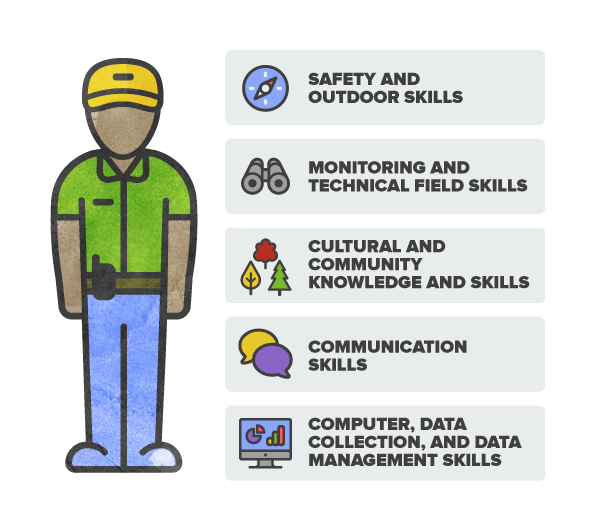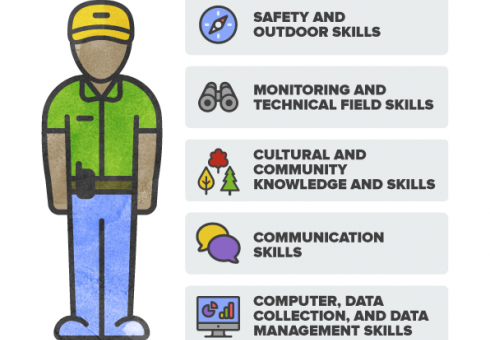What skills and training do Indigenous Guardians need?
One of the first questions you may need to answer when thinking about a training program is: what combination of skills and training are required to build a strong guardian crew that can do their job effectively and safely?
While some guardians may have strong knowledge of their culture and territory and a lifetime of experience working in the field, others may not. Some may bring a different set of skills and aptitudes that can help your program succeed. It is good to build a diverse guardian crew so that the knowledge, experience, skills, and talents of individual guardians can complement and strengthen each other.
Generally, guardian program staff will need a range of soft and hard skills between them to do their jobs well. These skills can be grouped generally into the following categories:

